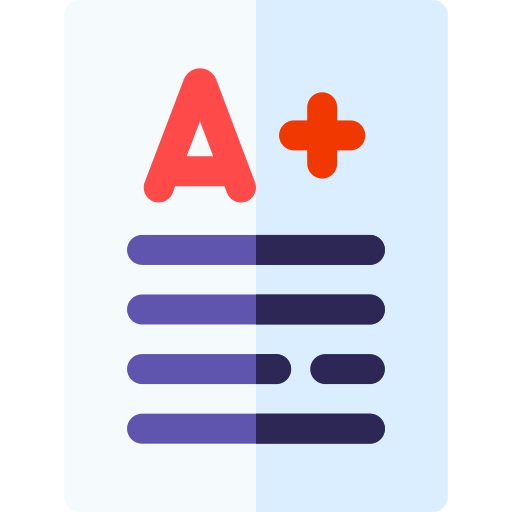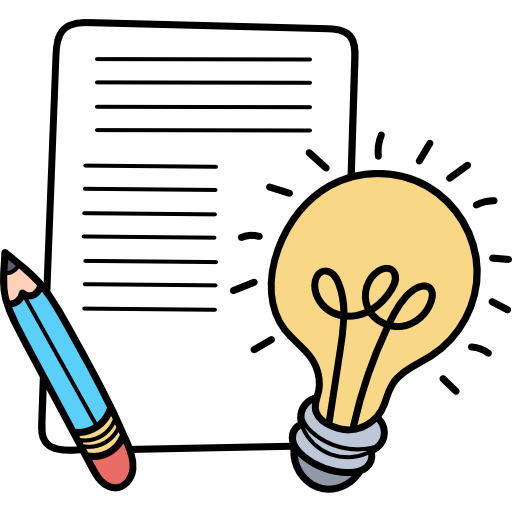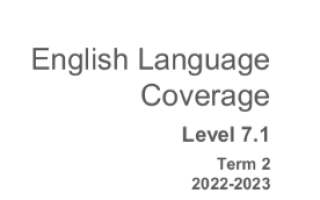بوربوينت قواعد ووظائف نهاية الفصل الثاني اللغة الإنجليزية الصف العاشر
The Coverage, Grammar and Functional Language Teaching Resource
The slides within this resource, although detailed, are designed to be used as a starting point for teachers to construct lessons around the language points that are explored here. The slides are intended to be used individually as a resource within a lesson and to be incorporated as part of instruction incrementally throughout the term to ensure that students have been exposed to all the language points in the mverage ahead of their end of term exam. Therefore. the PowerPoint should not be presented at a single event or in its entirety. Some functional language points may overlap with grammatical points in the coverage, and in that case, it is possible to combine slides. However, this resource should be
considered to be a collection of individual slides that teachers can use to enhance stucknts' learning
Within this document, you will find information about the coverage for this term. The lexis family that assessrnents will contain is mentioned as well as the particular grarnmatical and functional language points that will be tested in the exams at the end of this terrn. In the preparation sections, you will find examples and explanations for the grammatical and functional language points that will be assessed this term
The grammar preparation section has an example sentence that illustrates the grammatical point. It follows this with an explanation of the meaning of the example sentence. Next, the specific grammatical structure used within the example sentence is detailed followed by an explanation of the circumstances under whidl the particular structure is used. More example sentences using the structure are given at the end of the slide. In the functional language preparation section. there are examples of the particular language point followed by an explanation of how the particular are used. In the associated grammar section, language points that comprise the structure or can be used to in conjunction with the language
The speaker is telling us what they expected would happen in the competition
The direct thought was, "I will win this race." However, they did not win
Reported thought
subject + thought + that clause (that + subject + backshifted verb + object)
We can use reported thoughts to repeat what someone's expectations had been about an event that has now taken place. When we use reported thoughts, the implication is that the results are different to how the speaker expected them to be. When we report, we are talking about a thought that has taken place in the past. We therefore backshift the verb from the direct thought by moving it one step into the past. for example, 'will' in the direct thought becomes 'would' in the indirect thought
My mum thought -that she was going to pick me up from school, but she couldn't in the end
They thought that they were taking the exam next week, but it was cancelled
Mariam thought that she was going to fail the exam. but she actually passed
The speaker is reporting what they have previously said about someone getting a job. The passive is used because the emphasis is on the action (getting a job) rather than who has decided to appoint them. The direct speech was, "They'll give him the job
Reported speech: passive
Past clause of belief/ reporting + 'would'?was/ were going to' + 'be' + past participle
We can use a reporting clause with passive infinitives to report what somebody has said or thought about a subject in the past. The first clause in the sentence is reported speech and is formed with a reporting verb in the past tense. The emphasis of the sentence is on the previous speech. The second clause is the passive infinitive and is used because the emphasis is on the action rather than the doer of the action
The speaker is reporting some advice a group of have given to them about an action they were considering in the past. The direct speech was, go there
orders/ requests/ advice with to' + infinitive verb
We can use a reporting verb with 'to' and an infinitive verb to talk about an order, request or pieæ of advice has said directly to us in the past. is with a reporting verb (e.g. warned) and the infinitive of the verb (e.g. go) is used instead of backshifting as the direct statement is either an imperative or a piece of adviæ with 'should'
She begged me to take her book back to the library
I encnuraged him to learn Mandarin
in an expensive hotel, if I'd saved more money
The speaker didn't save enough money and therefore cnuldn't stay in an hotel. They are imagining the situation different
Third conditional
'if + past perfect, with
'would/ wouldn't/ could' + have + past participle
'would,' wouldn't / could' + have + past participle + 'if + past perfect
We use the third conditional to a past action and to imagine the results of that action. It is often used to express regret
Salem wouldn't have failed if he'd studied harder
If we'd left earlier, we wouldn't have missed our flight
They would have on time if they hadn't dropped their friend off
At an undefined period of time in the past, Amal to study a particular new language but she doesn't want to now
Past continuous
noun phrase + 'was / were
intending/ planning/ hoping• + 'to' + verb phrase infinitive
The past continuous is used to describe an action that was taking place for an undefined of time in the past. The verbs intending / planning / hoping are referring to past plans and intentions. They are used in past continuous to talk about intentions, plans and that the no longer has
They hoping to travel to Europe this summer
I wasn't planning to start yoga, but I changed my mind
She was intending to climb Jais mountain
The speaker is emphasising and mising on the desire to be part of the winning team
Cleft sentences in the past, present and future tense
Wh- cleft sentences: Wh- clause + word / phrase
We use cleft sentences to help us focus on a particular part of the sentence and to emphasise new information. Wh- cleft sentences: Usually with what, but we can also use why, where, how, etc. The information in the wh- clause is typically understood information, while the information in the following clause is new and emphasised
What -I- need- now -is a cup of hot cocoa
What -they - need -is a long holiday in Europe
What Al'i said was that he dæsn't need our help




